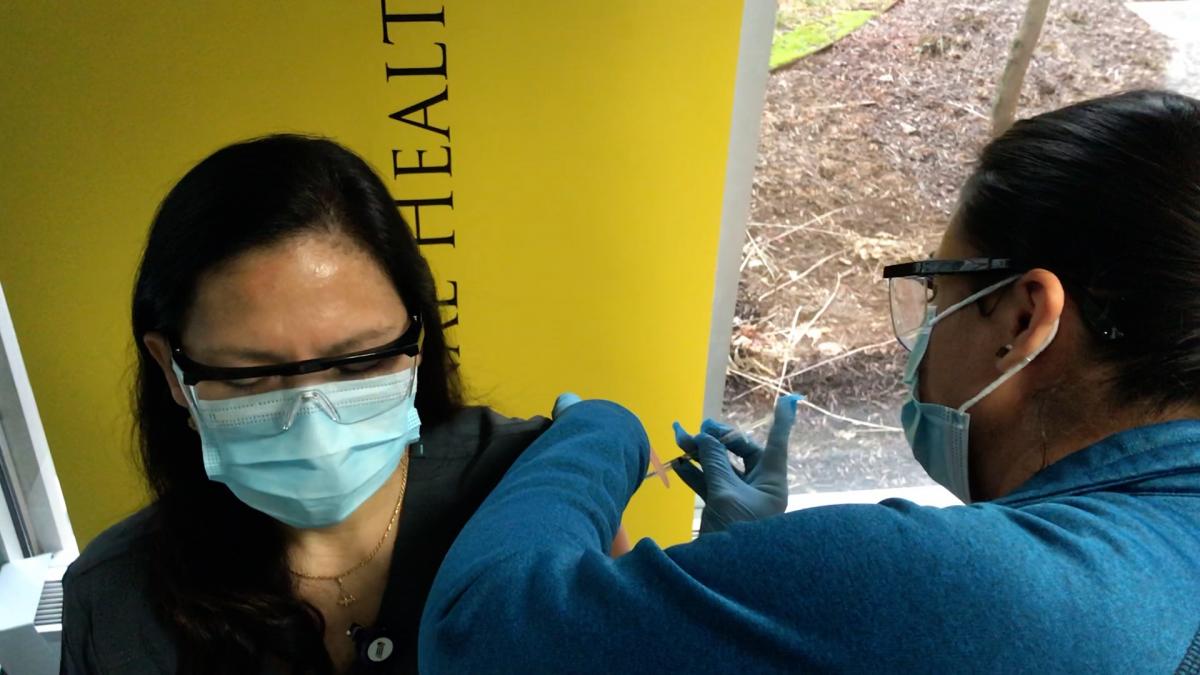Through a partnership between University of Maryland Shore Regional Health (UM SRH) and Chesapeake College, COVID-19 vaccinations will be offered by appointment on Wednesdays, Thursdays and Fridays in the College’s Eastern Shore Higher Education Center on the Wye Mills campus, beginning Wednesday, April 7.
The vaccines are provided by UM SRH and administered by hospital personnel and volunteers, including nurses, former nurses and pharmacists. At this time, vaccine eligibility for Maryland residents has been expanded to include those in the 2B tier; for details, visit “Vaccine Phases” on this link: https://coronavirus.maryland.gov/pages/vaccine.
“This really opens the gates to a much broader range of people who can now get vaccinated and help protect themselves, their family members, co-workers and friends from COVID-19,” Kevin Chapple, UM SRH’s regional director of pharmacy services. “We encourage everyone to take advantage of this opportunity to get vaccinated quickly, safely and efficiently, close to home.”
To register for a vaccine appointment at Chesapeake College, visit www.umms.org/coronavirus/covid-vaccine/get-vaccine and follow the instructions to complete the registration form. Vaccine appointments are scheduled on a first-come, first served basis. No walk-ins will be allowed.
“We’re pleased that our partnership with University of Maryland Shore Regional Health is expanding to further care for our community,” said Chesapeake College President Clifford Coppersmith. “In addition to serving as a Covid-19 testing site, our centrally located Wye Mills campus will also be a convenient site for Shore residents to receive Covid-19 vaccinations. Providing a location and support for this vaccination site is another way Chesapeake College is helping the region recover from the pandemic.”



